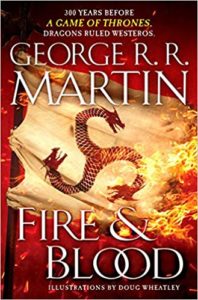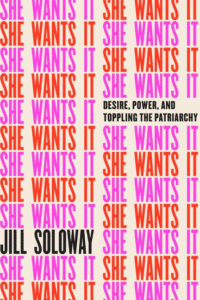
Schadenfreude, noun, scha·den·freu·de
German, from Schaden damage + Freude joy
Definition: enjoyment obtained from the troubles of others
The most wonderful time of the year is upon us once again, folks. No, we’re not talking about the cheery beginnings of the holiday season or that magical first snowfall or even the return to grocery store shelves of eggnog and peppermint bark. We speak of course of that one special day when the the kindly review curators of Book Marks—a normally warmhearted institution dedicated to helping readers find the books they’ll love by spotlighting the best in contemporary literary criticism—get to unleash upon the hungry masses their favorite pans of the year.
2018 has been a banner year for low-hanging fruit, with Sean Spicer, Omarosa, Sean Penn, and Willie-Jim Clinterson (our catchy portmanteau for new literary power couple Bill Clinton and James Patterson) all releasing heavily publicized, heavily-derided new books. 2018 also saw the publication of a new novel from everyone’s favorite Oprah-disapointer (and 2018 Bad Sex in Fiction Award-winner) James Frey; the sixth and final volume in Karl Ove Knausgaard’s polarizing My Struggle series; and an ill-advised stopgap tome from the Emperor of Extensions, George R.R. Martin.
So come with us, dear reader, on a journey of shameful joy, as we peruse together the most scathing book reviews of 2018.
*
Bob Honey Who Just Do Stuff by Sean Penn
“Is it needlessly cynical to read a pompous celebrity’s very bad novel purely in order to dunk on it? Yes. But the true joke is on me, because it’s physically impossible to dunk on a novel that is already dunking on itself so hard. Bob Honey is an exercise in ass-showing, a 160-page self-own … Nothing hangs together. Often when critics compare a novel to a ‘fever dream,’ they mean it as a compliment, conveying that the book creates its own otherworldly universe and dream logic. When I say that Bob Honey is reminiscent of a fever dream, I mean that it’s nonsensical, unpleasant and left me sweaty with mingled horror and confusion … Scattered throughout is the sort of gleeful racism and misogyny that qualifies Penn’s work as ‘darkly comic’ … It’s not often that you read a literary novel about which the most flattering adjective you might use is ‘derivative,’ but such is the case here … This is all, apparently, supposed to seem deeply witty and profound. Instead, it’s akin to the product of a postmodern literature bot. It doesn’t seem quite possible that a human person wrote this mess.”
–Claire Fallon (Huffington Post)
The President is Missing by Bill Clinton and James Patterson
“I’ve never wished I had a grandfather more than in contending with this book-shaped blob of paranoia and vanquished machismo; I need somebody with a stake in James Patterson (or rather the fiction-production factory to which he lends his name) to translate this bulletin of xenophobia and disposable TV patriotism for my benefit. But I must persevere. For the duration of this review, I will strive to become my own grandpa … a gross and gristly wank of a book that oozes contempt for the press and democratic norms. Throughout, Duncan delivers banal talking points on the opioid crisis, gun laws, climate change, affordable health care, and racism, but because he so clearly despises due process—his authoritarian sense of superiority is beyond question—the effect is to make him sound less like a tenderhearted head of state and more like Patrick Bateman from American Psycho … The President is Missing is, on the one hand, a harmless airplane book and a flippant curiosity by an ex-president playing James Bond with the help of a legion of hack writers…But it’s also an indulgent white man’s daydream about casual abuse of power from a president famous for casual abuses of power.”
–JW McCormack (The Baffler)
Katerina by James Frey
“Whatever else you might say about Frey, he possesses in spades the key quality for success in the twenty-first century: shamelessness … Henry Miller is the clear inspiration, but the sex in Katerina reminded me less of Tropic of Cancer and more of the scene in The 40-Year-Old Virgin in which Steve Carell’s character tries to bluff his way through a conversation about women by comparing breasts to bags of sand. Where Miller was, at the very least, inventively crude, Frey is artificial and bland … Frey clearly wants you to read this soliloquy as an earnest challenge he’s offering himself in real life. If it is, Katerina is a particularly damp response. But I’m not sure I can give him even that much credit. It’s hard to imagine that Frey genuinely believes the story of a young man and his model girlfriend screwing in Paris will ‘burn the world down.’ But someone with experience in the publishing industry, and with producing young-adult fiction, might recognize that a melodramatic and slightly seedy romance with a tinge of newsy metatextual frisson is an eminently marketable book ripe for a Hollywood studio to option … It’s possible that Katerina is an utterly heartfelt novel, and that Frey is an authentically inept writer, rather than a calculatingly bad one. But how could anyone tell? When you build a career as a cynical fraud, even your incompetence becomes suspicious.”
–Max Read (Bookforum)
The Briefing by Sean Spicer
“Even a half-witted political memoir would grapple with such a disconnect—perhaps by acknowledging some fault in the boss, or perhaps by comparing his low points with those of other presidents. Yet The Briefing isn’t a political memoir, nor is it a work of recent history, nor a tell-all, or tell-anything. Rather, it is a bumbling effort at gaslighting Americans into doubting what they have seen with their own eyes as far back as June 2015, when Trump announced his candidacy and labeled Mexican immigrants as rapists, beginning a pattern of racist attacks … On the larger question of Trump’s mendacity . . . uh, what mendacity? Twisting language into the incomprehensible—and meaningless—was a special talent of Spicer the press secretary and also clearly of Spicer the memoirist.”
–Erik Wemple (The Washington Post)
My Struggle: Book 6 by Karl One Knausgaard
“…a gift to his detractors, those who have found the books to be solipsistic and overwrought. At nearly 1,200 earnest pages, Book Six is a life-drainer, so dense and so dull that time and light seem to bend around it. I had to flog myself through it. I carried it under my arm like a football, giving the Heisman Trophy push-off to friends, family, basic hygiene, Netflix and the pets. When I finished, I felt there were fang marks in my neck; I wanted a blood transfusion. There are few books I will more avidly not read again … Especially trying is Book Six’s 400-plus page excursus into Hitler and the etiology of the Third Reich. It is a grindingly sophomoric exercise that sits undigested under this novel’s skin, like an armchair inside a snake … This book is the largest in the absorbing My Struggle series, but curiously it’s the runt of the litter.”
–Dwight Garner (The New York Times)

Fire and Blood by George R. R. Martin
“In a way, Martin’s big error with Fire and Blood is not unlike George Lucas’s, with his three godawful prequels to Star Wars. Both had originals to which fans would return, obsessively, precisely because their huge operatic backstories could only be imagined. And both men, eventually, appear to have been struck by a beard-stroking, mansplaining horror that these fans might be imagining them ever so slightly wrong … At some points, this gets frankly impenetrable … Even this would be forgivable if the story drew you in, but it does not, because there isn’t one … Occasionally the narrative shows signs of flaring up into what could have been a proper story if Martin could have been bothered to write it properly. Essentially, it is all one long synopsis for about 50 books that he will never get around to writing, which itself has only been written because he can’t get around to writing the other two Game of Thrones books that his fans are waiting for. … Worse still, after a doorstop of a thing, we’re still a century and a half short of GoT even beginning, which means there’s another volume of this interminable, self-indulgent crap to come.”
–Hugo Rifkind (The Times [UK])

She Wants It by Jill Soloway
“…just south of worth purchasing at the airport … it is incompetent, defensive, and astonishingly clueless … The nicest thing that can be said of this oblivious, self-absorbed, unimportant book is that it proves, once and for all, that trans people are fully, regrettably human … Evidently no one at Random House could be bothered to crack open the old Wheelock … self-importance alone could never guarantee writing this atrocious … Soloway introduces deep-sounding quotes from other authors like a middle-schooler phoning in a Kate Chopin paper … Throughout She Wants It, Soloway alternates, confusingly, between contradictory sites of gender enunciation … Soloway certainly makes it easy to believe the longstanding charge that she sees trans people as creative oil to be fracked … But nothing is more cringeworthy than Soloway’s account of the #MeToo movement … Our author often appears to believe she can take history’s pulse by glancing at her own Fitbit … The only conclusion to be drawn from this very bad book, which puts the ‘self’ in ‘self-aware,’ is that Jill Soloway has an unstoppable, pathological urge to tell on herself.”
–Andrea Long Chu (Affidavit)
Unhinged by Omarosa Manigault Newman
“In short, you don’t really need to read Unhinged, which recalls Carrie Bradshaw bloviating at her desk at midnight. (‘I had to wonder, if Trump used the N-word so frequently during that season of the show, had he ever used it to refer to either Kwame or myself?’) Much of the book’s information is mundane, already reported on, or unsubstantiated. The arc turns on an inane semantic argument—that ‘there is a difference between being a racist, racial, and someone who racializes’—and the fact that, coincidentally, right around the time Omarosa had to find a new gig, she realized Trump was a racist … she can’t seem to choose between dressing herself as a bushy-tailed mentee, whose abstracted loyalty precludes her from seeing the misogyny and racism of her ‘mentor,’ or a savvy career woman, who was willing to play dirty to get ahead … Opportunism has never morally burdened her, which makes her self-interest seem both egregious and banal. She has clung to her infamy, in part, by perverting the black worker’s experience of racism. She has always exploited the vantage of the pariah, but has more frequently tried to frame herself as a victim.”
–Doreen St. Felix (The New Yorker)
The Coddling of the American Mind by Greg Lukianoff and Jonathan Haidt
“The Coddling of the American Mind is less interesting for its anecdotes or arguments, which are familiar, than as an epitome of a contemporary liberal style. That style wants above all to be reasonable. Lukianoff and Haidt include adverb after adverb to telegraph how well they have thought things through … The style that does befit an expert, apparently, is the style of TED talks, thinktanks and fellow Atlantic writers and psychologists. The citations in this book draw a circle around a closed world. In offering a definition of ‘identity politics,’ a term coined by the black socialist lesbians of the Combahee River Collective (and the subject of a recent book edited by Yamahtta-Taylor), Lukianoff and Haidt quote ‘Jonathan Rauch, a scholar at the Brookings Institution.’ They tell their readers to read Pinker, whose fulsome blurb appears on their book jacket … Lukianoff and Haidt go out of their way to reassure us: ‘Neither of us has ever voted for a Republican for Congress or the presidency.’ Like Mark Lilla, Pinker and Francis Fukuyama, who have all condemned identity politics in recent books, they are careful to distinguish themselves from the unwashed masses—those who also hate identity politics and supposedly brought us Donald Trump. In fact, the data shows that it was precisely the better-off people in poor places, perhaps not so unlike these famous professors in the struggling academy, who elected Trump; but never mind. I believe that these pundits, like the white suburban Dad in the horror film Get Out, would have voted for Barack Obama a third time … The core irony of The Coddling of the American Mind is that, by opposing identity politics, its authors try to consolidate an identity that does not have to see itself as such. Enjoying the luxury of living free from discrimination and domination, they therefore insist that the crises moving young people to action are all in their heads. Imagine thinking that racism and sexism were just bad ideas that a good debate could conquer!”
–Moira Weigel (The Guardian)
The Next Person You Meet In Heaven by Mitch Albom
“Reading The Next Person You Meet in Heaven, in 2018, is like watching a version of NBC’s moral philosophizing sitcom ‘The Good Place’ that has had every stitch of nuance and humor surgically excised … The Next Person is blandly credulous. No truism undergoes examination; instead, Albom engineers a simulacrum of reality in which each tragedy has an equal and opposite silver lining, and in which life is lived in heroic gestures … One gets the uncomfortable sense that Albom’s ideal of goodness depends on people being left vulnerable to violence, poverty and abuse because ameliorating those evils is what allows other people to flex their virtue muscles … A fundamental coolness lies at the heart of Albom’s fiction, a vacancy where the beating human heart should be. His Heaven books purport to celebrate the warm interconnectedness of humanity; they clamor insistently that heaven lies in other people. But Albom’s vision of paradise betrays that what he sees in other people is, in fact, hell. Heaven is escaping from them.”
–Claire Fallon (Huffington Post)
*
Hungry for more deliciously venomous criticism?
Reacquaint yourself with The Most Scathing Book Reviews of 2017

